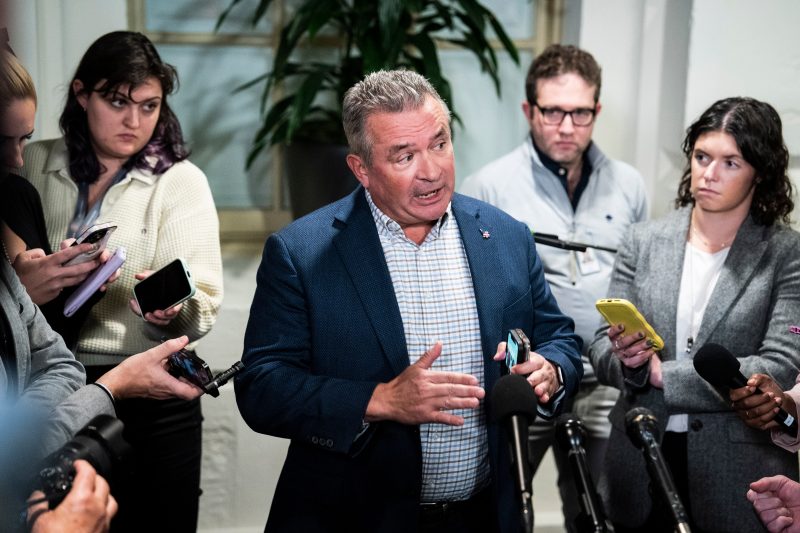The recent political landscape in Nebraska has been marked by a significant development as Congressman Jeff Fortenberry faces a primary challenge without the backing of the state GOP. This unexpected turn of events has sparked debates and discussions among political analysts and citizens alike. As the primary election draws closer, the spotlight is firmly fixed on Fortenberry and his ability to secure the nomination without the conventional support of his party.
The absence of support from the state GOP has raised questions about Fortenberry’s standing within the party and his ability to rally support from key stakeholders. Typically, incumbents rely on the backing of their party to solidify their position and demonstrate unity within their ranks. However, Fortenberry’s primary challenge without this support underscores the growing discontent and division within the Nebraska Republican Party.
The primary challenge facing Fortenberry is being closely watched by political observers who see it as a test of his political prowess and ability to navigate the changing dynamics of the Republican Party. With the rise of populist movements and vocal grassroots activism, traditional party support may no longer be sufficient to guarantee victory in an election. Fortenberry’s ability to connect with voters and appeal to a broader base will be crucial in determining his fate in the upcoming primary.
Moreover, the primary challenge highlights the shifting nature of politics in Nebraska and the broader implications for the Republican Party as a whole. As factions within the party continue to emerge and advocate for different ideological positions, incumbents like Fortenberry must adapt and respond to these changing dynamics. The outcome of the primary will not only determine Fortenberry’s political future but also shed light on the broader trends shaping the Republican Party in Nebraska.
In response to the lack of support from the state GOP, Fortenberry has embarked on a grassroots campaign to rally support from voters and demonstrate his commitment to their concerns. By focusing on issues that resonate with constituents and emphasizing his record of service, Fortenberry aims to appeal to voters beyond traditional party lines. This strategy reflects the changing landscape of political campaigning, which increasingly values direct voter engagement and grassroots support.
Overall, the primary challenge facing Congressman Jeff Fortenberry in Nebraska underscores the evolving dynamics of the Republican Party and the need for incumbents to adapt to changing political realities. The outcome of the upcoming primary will not only shape Fortenberry’s political future but also provide valuable insights into the shifting landscape of politics in Nebraska and beyond. As Fortenberry continues to navigate this challenging terrain, his ability to connect with voters and secure their support will be vital in determining his success in the primary election.

